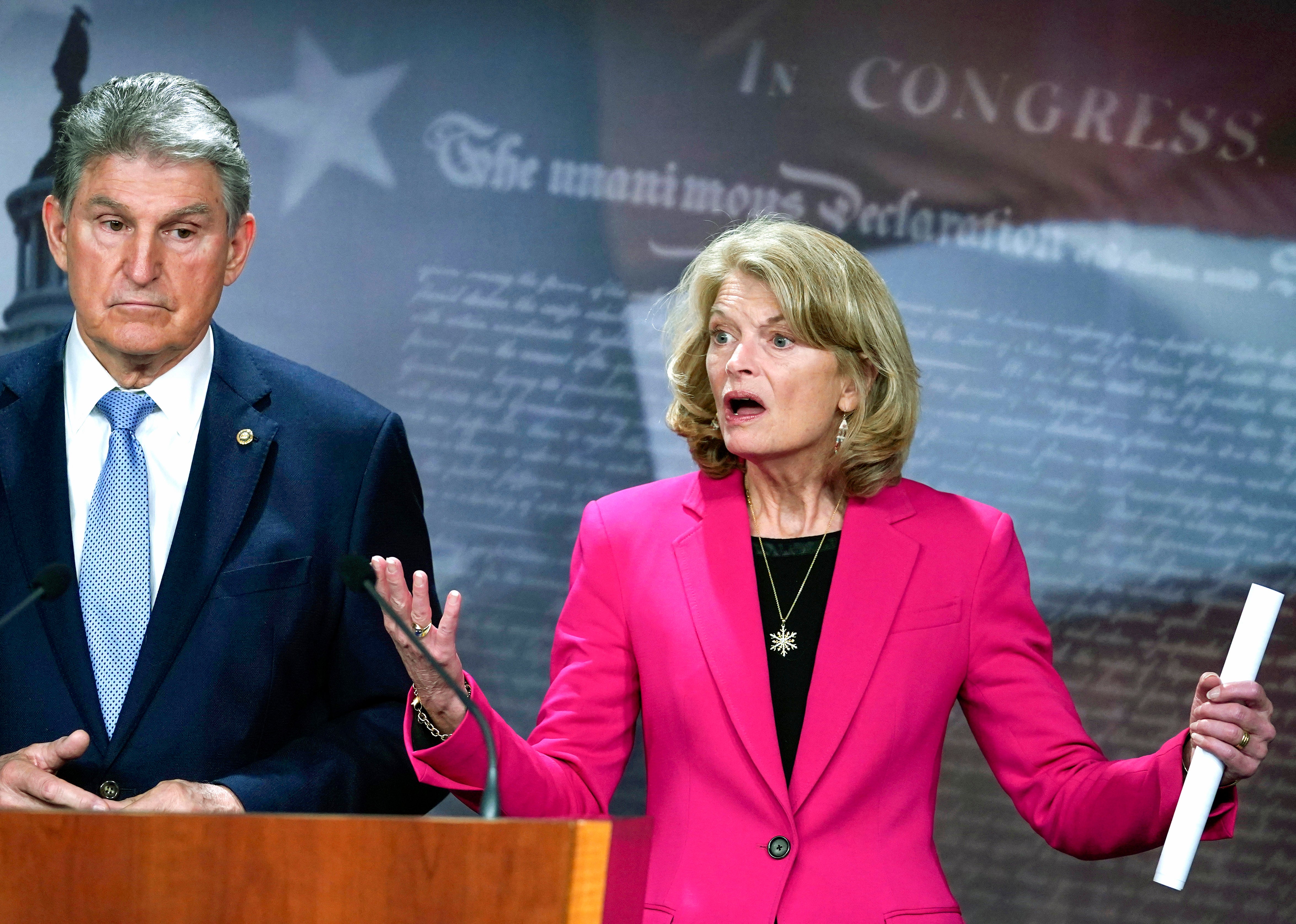Pelosi supports halting Russian oil imports to US: 'Ban it'
House Speaker Nancy Pelosi says she supports banning Russian oil imports to the U.S. Amid the escalating war in Ukraine, Pelosi she's “all for” backing Russian oil

Your support helps us to tell the story
From reproductive rights to climate change to Big Tech, The Independent is on the ground when the story is developing. Whether it's investigating the financials of Elon Musk's pro-Trump PAC or producing our latest documentary, 'The A Word', which shines a light on the American women fighting for reproductive rights, we know how important it is to parse out the facts from the messaging.
At such a critical moment in US history, we need reporters on the ground. Your donation allows us to keep sending journalists to speak to both sides of the story.
The Independent is trusted by Americans across the entire political spectrum. And unlike many other quality news outlets, we choose not to lock Americans out of our reporting and analysis with paywalls. We believe quality journalism should be available to everyone, paid for by those who can afford it.
Your support makes all the difference.Amid the escalating war in Ukraine, House Speaker Nancy Pelosi said Thursday she supports banning Russian oil imports to the U.S., a hefty nod that could strengthen President Joe Biden's hand as global allies seek to isolate Russian President Vladimir Putin's regime.
Biden has been reluctant to curb Russian oil shipments to the U.S. or slap on energy sanctions in ways that would reduce supply as gas prices at the pump are already climbing for Americans. But Pelosi's support gives fresh currency for an idea in Congress already backed by wide swaths of Republicans and an increasing number of Democrats. The White House has said all tools remain on the table.
“I'm all for that," Pelosi said about ending Russian oil in the U.S. “Ban it.”
Finding common ground to counter Russian aggression toward Ukraine through energy policy would be a breakthrough for the divided Congress, which has shown remarkable resolve in unifying U.S. support for Ukrainians but has struggled over concrete steps that would help the Western-style democracy battle the Russian invasion.
A Russian oil ban could draw momentary alliance of lawmakers on the left and right — Democrats fighting climate change who want to lessen the U.S. reliance on fossil fuels; Republicans who want to boost U.S. energy production at home; and the great majority of lawmakers of both parties who want to stop Putin's war.
Republicans have been pushing for the Russian oil ban, joined by some Democrats eager to punish Putin. “What if we crush the oil and gas sector of the Russian economy?” said Sen. Lindsey Graham, R-S.C. “That would be a lethal combination for the Russian economy.”
Sen. Ed Markey, a liberal Democrat from Massachusetts and a leading advocate of climate change strategies, also backs an import ban. “We cannot criticize Europe for its reliance on Russian energy as we pour dirty oil money into Russia,” he said
Still, Biden has resisted, fearing a ban could further disrupt global markets and raise already high prices at the pump. He also risks backlash from climate change activists who say U.S. officials must not use the Ukraine war to expand oil or gas drilling in the U.S., a step Republicans have been urging. Gas prices in the U.S. averaged nearly $3.73 a gallon Thursday, up almost $1 from a year ago, according to AAA motor club.
For now, the White House has said all options remain on the table. “We don’t have a strategic interest in reducing the global supply of energy,” said White House press secretary Jen Psaki.
The remarks from the White House were widely criticized as misguided by Sen. Joe Manchin, D-W.Va., and Sen. Lisa Murkowski, R-Alaska, at a press conference Thursday introducing a bipartisan bill to halt Russian oil imports to the U.S.
The legislation would halt Russian oil imports in the U.S. by declaring a national emergency, something Biden could also do on his own. It gained bipartisan support, including from leadership of the House Problem Solvers Caucus.
“There is a moral obligation here: I don’t want us dollars to be funding this, this carnage in Ukraine led by Putin,” Murkowski said.
Murkowski said she understood Biden won the White House in part on his promise to fight climate change, but she said after the Russian war in Ukraine, “We are in a different place.”
Russian oil and gas exports have loomed over national security policy in the U.S. and its Western allies. The energy sector is vital to the Russian economy and the industry is a political force that leaves countries reliant on Putin's regime. Oil prices globally spiked with the Russian invasion of Ukraine, shaking markets.
The U.S. imported a small but notable amount of oil from Russia — some 7 % of all imports of crude oil and petroleum products. Some US industry groups say it’s even less. In 2021, the U.S. brought in roughly 245 million barrels of crude oil and petroleum products from Russia — a one-year increase of 24%, according to the U.S. Energy Information Administration.
Pelosi said she doesn’t want to see rising gas prices at the pump for Americans, and outlined steps Congress and the administration are taking to avoid spikes.
Biden announced on Tuesday that he is releasing 30 million barrels of oil from U.S. strategic reserves, part of a global effort to ease oil supplies amid the Ukraine war, and some Democrats have been pushing a temporary holiday from the federal gas tax to ease costs to consumers.
The White House has not endorsed the gas tax holiday or ruled it out.
___
Associated Press writer Matthew Daly contributed to this story.